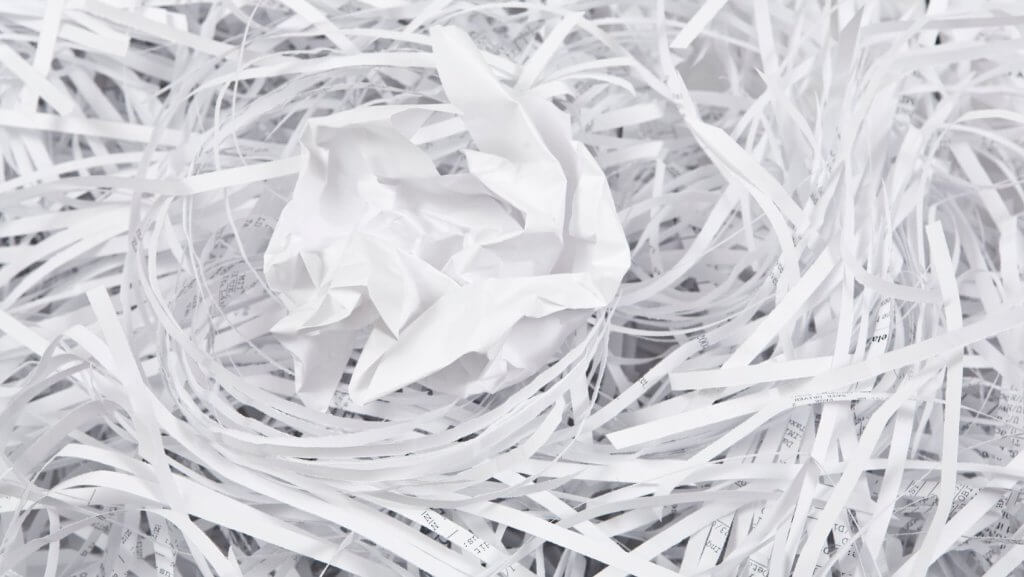

We live in a world where convenience often trumps caution. We click “accept” without reading privacy policies and toss out old bills without a second thought. But lurking beneath those seemingly harmless papers could be a goldmine for identity thieves. From credit card statements and bank statements to utility bills and medical records, sensitive information can be found on just about any piece of paper we throw away. And while shredding these documents may seem like a hassle, it’s essential to protecting our privacy.
In this guide, we’ll explore the reasons behind implementing an ongoing shredding service, the types of documents you should prioritize, and best practices for selecting and utilizing a professional shredding service.
The Importance Of Ongoing Shredding
Privacy breaches can lead to significant financial and reputational damages, and the fallout is not confined to the incident’s immediate aftermath. For both individuals and organizations, privacy violations can have lifelong ramifications.
While curbing identity theft and preserving your security are poignant motivations for ongoing shredding, these efforts also dovetail with legislative imperatives. Businesses, in particular, must carefully adhere to a labyrinth of data protection regulations, such as FACTA and HIPAA, ensuring the proper disposal of sensitive documents. A proactive shredding policy serves not just to protect data but also to demonstrate a commitment to regulatory compliance.
Types Of Documents To Shred Regularly
Certain documents have a higher risk profile and should be prioritized in a regular shredding routine. Here are the kinds of paperwork that, in the wrong hands, could be exploited to your detriment:
Financial Statements
This includes old tax forms, bank statements, and any documentation that discloses credit or debit card information. Financial documents are a goldmine for identity thieves, granting them access to your personal resources and credit lines.
Personal Correspondence
Letters and other written exchanges can often contain personal and private details that are best kept under wraps. This is especially true if they contain personal identifiers or financial or legally significant information.
Legal Documents
Copies of wills, contracts, and other legal papers contain explicit personal data and could compromise your legal standing if accessed without authorization.
Medical Records
Sensitive patient information carries strict protections under HIPAA regulations. Proper shredding is not just recommended—it’s legally mandated in healthcare settings and wise for individuals.
Benefits Of Ongoing Shredding Services
Ongoing shredding services offer a solution that is both safe and efficient. Rather than relying on in-house paper shredders, which can be time-consuming and prone to human error, outsourcing the task to a professional service offers several benefits:
- Security: Professional shredding services utilize cross-cut shredders, which ensure documents are destroyed and reduce the risk of identity theft.
- Convenience: With ongoing shredding services, you don’t have to worry about constantly shredding documents. Place them in a secure bin and let the professionals take care of them regularly.
- Cost-effective: While some may view shredding services as an added expense, the potential cost of not properly disposing of sensitive information far outweighs the cost of ongoing shredding services.
- Environmental Responsibility: Ongoing shredding services often have eco-friendly disposal methods, ensuring the shredded paper is properly recycled.
Best Practices For Ongoing Shredding Services
Now that we understand the importance of shredding, the question becomes how best to do it. A professional shredding service can streamline the process and add a layer of security. When selecting a service, consider the following best practices:
Develop A Shredding Schedule
Consistency is key. Regularly scheduled shredding sessions ensure that new sensitive documents are kept from being lost and waiting to be shredded in the shuffle. Whether it’s a monthly, quarterly, or annual schedule, stick to the plan.
Secure Disposal Methods
Ensure the shredding service offers secure disposal methods, such as locked bins and consoles. This adds an extra layer of security and ensures that your documents are not at risk of being accessed before they are shredded.
Verify Compliance With Regulations
Before selecting a shredding service, make sure they comply with all relevant regulations, including FACTA and HIPAA. Knowing that your sensitive documents are being disposed of legally and responsibly will give you peace of mind.
Request A Certificate Of Destruction
A reputable shredding service should provide you with a certificate of destruction after each shredding session. This document proves that your confidential information has been properly disposed of, giving you added protection in any data breach.
How To Choose Your Own Scheduled Shredding Plan
The versatility of ongoing shredding services means you can customize the frequency and scope of your shredding plan to match your specific needs. A monthly plan is sufficient for small businesses, ensuring that sensitive paperwork is disposed of promptly without accruing in large volumes. Larger firms or organizations handling a high volume of sensitive documents might opt for a more frequent, perhaps weekly, shredding schedule to mitigate the risks associated with data breaches more effectively. It’s important to realistically assess your document production rate and storage capacities before settling on a schedule. An annual audit of your document management practices can help adjust the shredding plan as your needs evolve, ensuring optimal privacy protection and regulatory compliance.
Conclusion
Proactively managing private and sensitive documents through regular shredding is not merely a matter of discretion but a critical component of a comprehensive privacy protection strategy. For individuals and organizations alike, establishing a routine for the secure destruction of documents can prevent many privacy violations and assure compliance with stringent data protection laws. By adopting ongoing shredding services with Gator Shredding, you can safeguard your confidential information while demonstrating a commitment to privacy protection and regulatory compliance. Let us help you protect what matters most – contact Gator Shredding today for all your ongoing shredding needs.
References
- U.S. Department of Health & Human Services. (n.d.). Health Information Privacy. HHS.gov. https://www.hhs.gov/hipaa/index.html
- Federal Trade Commission. (2020, February). How to Keep Your Personal Information Secure. FTC Consumer Information. https://www.consumer.ftc.gov/articles/0272-how-keep-your-personal-information-secure
- National Association for Information Destruction. (n.d.). What is NAID? NAID. https://naidonline.org/about/what-is-naid/
- U.S. Environmental Protection Agency. (2020, August). Recycling Basics. EPA. https://www.epa.gov/recycle/recycling-basics

